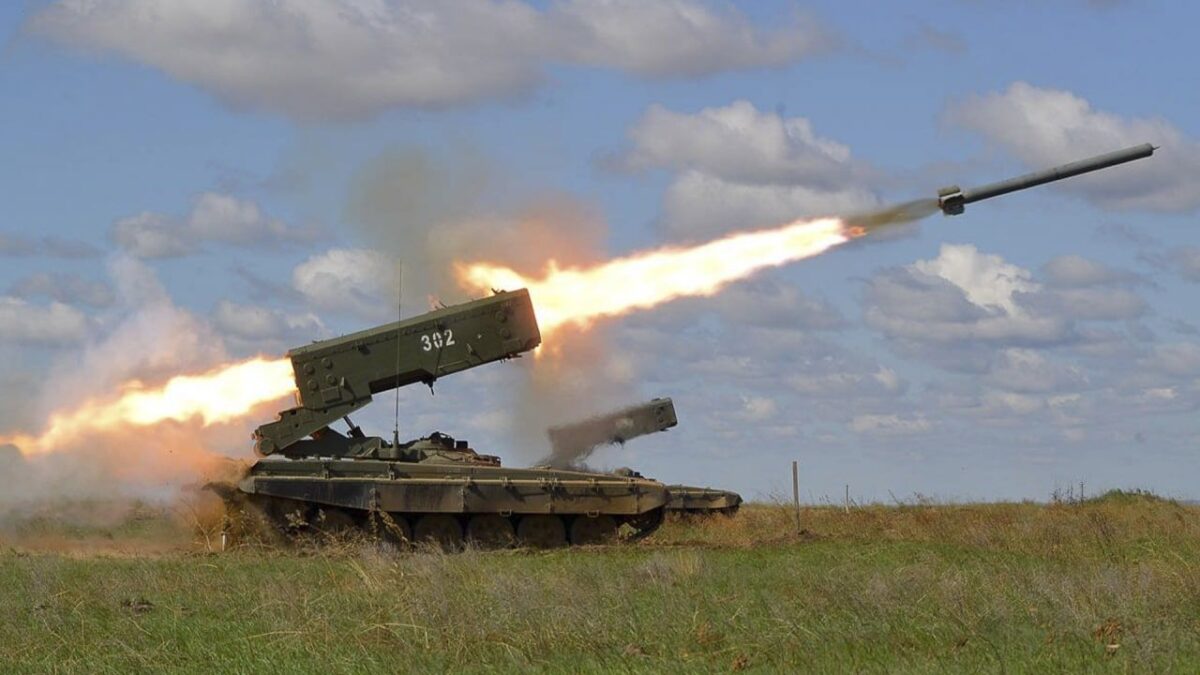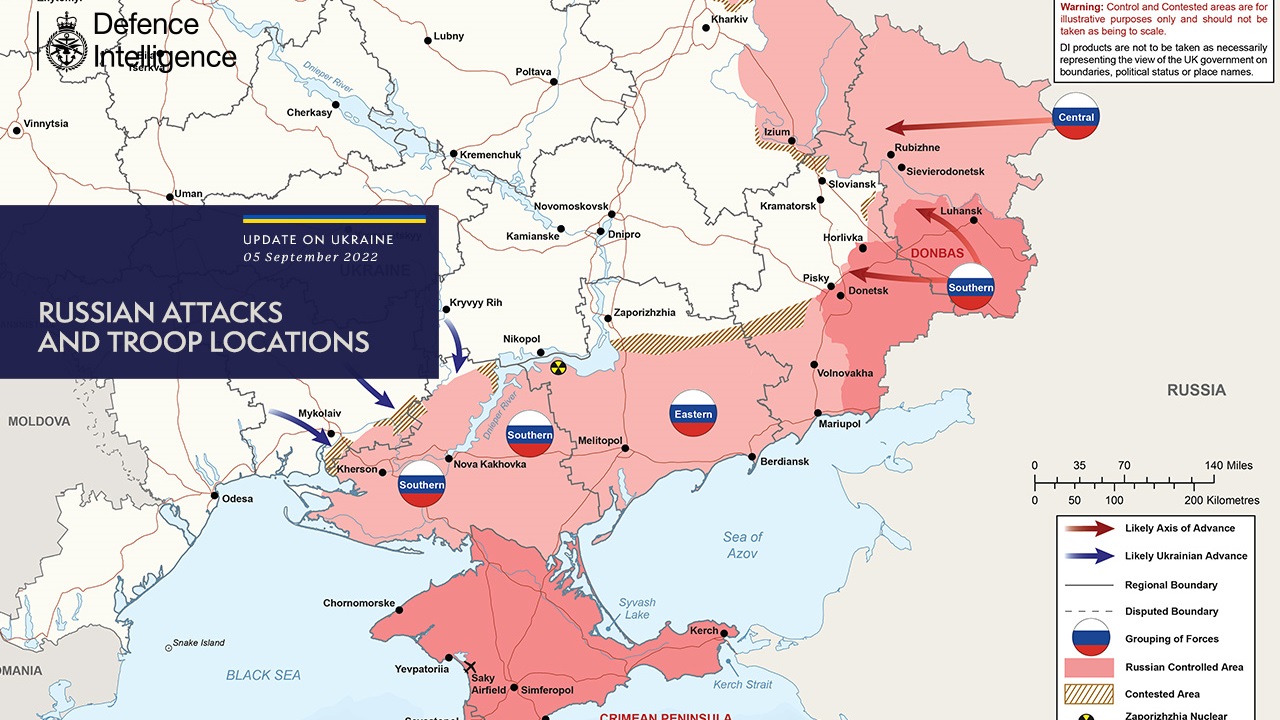The Real Reason “Sham” Referendums Will Be Held In Ukraine – Following months of preparations, two Russian-occupied regions in eastern Ukraine have confirmed plans to hold referendums this week, asking local residents whether they want to be governed by Moscow or Kyiv.
The move comes as Russia faces continued losses in eastern Ukraine and appears to be an effort by the remaining Russian-occupied territories in the east to prevent Ukrainian forces from attempting to reclaim even more territory. During the 2014 battle in Crimea, in which Russia illegally annexed the peninsula, referendums were used in the same way – not just to prevent the West from taking action to reverse Russia’s actions but also to provide legitimacy to Putin’s insistence that the territory was Russian.
The referendums are planned to take place in the self-styled Donetsk People’s Republic and Luhansk People’s Republic, two parts of Ukraine that Putin recognized as independent in a decree in February.
Denis Pushilin, the head of the Donetsk People’s Republic since 2018, said in a social media post addressed to the Russian president that he will ask the people of the region whether they want to become a part of the Russian Federation.
“I ask you, as soon as possible, in the event of a positive decision in the referendum – which we have no doubt about – to consider the DPR becoming a part of Russia,” Pushilin said.
Moscow-backed officials in the Kherson region to the south also said on Tuesday that they would hold a referendum on joining the Russian Federation.
The news is significant for many reasons, not least because it diverges from Russia’s original stated goal of “liberating” the regions from Ukraine and recognizing them as independent. Russian negotiators had previously demanded that Ukraine also declare the two separatist states as an independent – a condition Kyiv refused to accept. At the time, it sparked debate over whether Russia would later move to adopt the two self-styled republics into the Russian Federation. Now, it’s clear that Russia intends to incorporate the Donbas region into its own borders.
“Sham” Referendums Likely Won’t Change Much
Just as the West didn’t recognize the Crimean referendum in 2014, these polls are unlikely to have any sway in the West either. Russia will likely use the results of the referendums as a justification to continue fighting in the region, and to sell the war – and all the economic damage that comes with it – to the people of Russia.
Dmytro Kuleba, the Ukrainian Minister of Foreign Affairs, cast doubt on the legitimacy of the referendums this week on Twitter.
Describing the referendums as a “shame,” Kuleba said that they will “not change anything.”
“Neither will any hybrid ‘mobilization,’” he continued. “Russia has been and remains an aggressor illegally occupying parts of Ukrainian land. Ukraine has every right to liberate its territories and will keep liberating them whatever Russia has to say.”
Is Zaporizhzhia Next?
According to the RIA Novosti news agency, Zaporizhzhia could be the next Ukrainian region to hold a referendum. The news appears to confirm talk that Russia will use these referendums in a desperate attempt to maintain control of strategically important territory in Ukraine.
The Zaporizhzhia nuclear power plant has been the source of much controversy since the early days of the war when Russian forces took control of the plant and began using the grounds of the facility to store weapons, ammunition, and military vehicles.
No matter the result of the vote, however, repeated calls for the demilitarization of the nuclear power plant are likely to continue from Western leaders and the International Atomic Energy Agency, meaning Russia won’t win any favor over the continued military presence at the facility.
Other Ideas In Mind?
While it’s obvious that the West won’t recognize the legitimacy of the referendums, Putin will. We can almost say with certainty that these referendums will turn out in Putin’s favor, and if Moscow does recognize the results as legitimate, it means that any fighting in Donetsk and Luhansk – which will almost certainly continue even after the referendum – would be taking place on Russian soil in the eyes of the Kremlin.
That’s a significant change in the dynamics of the war and one that Western leaders must seriously consider. With U.S.-supplied HIMARS doing substantial damage to Russian units in the east, and European-supplied drones and rockets taking out Russian tanks and weapons, Russia may consider the attacks an escalation – a move that could come with uncertain consequences for NATO and U.S. forces in the region if Putin decided to strike back.

TOS-1A fighting in Ukraine. Image Credit: Creative Commons.
At the same time, it could all be one big bluff. Putin wants the war to end soon, according to Turkish President Recep Tayyip Erdogan, and these referendums could be just what Putin needs to discourage the West from continuing to help Ukraine reclaim the two contested territories.
Whether the West recognizes the legitimacy of these referendums or chooses to stop providing weapons that might be used on the soon-to-be “Russian territory,” depends on whether Western leaders honestly believe that Russia would respond militarily on NATO soil.
Jack Buckby is a British author, counter-extremism researcher, and journalist based in New York. Reporting on the U.K., Europe, and the U.S., he works to analyze and understand left-wing and right-wing radicalization, and reports on Western governments’ approaches to the pressing issues of today. His books and research papers explore these themes and propose pragmatic solutions to our increasingly polarized society.

